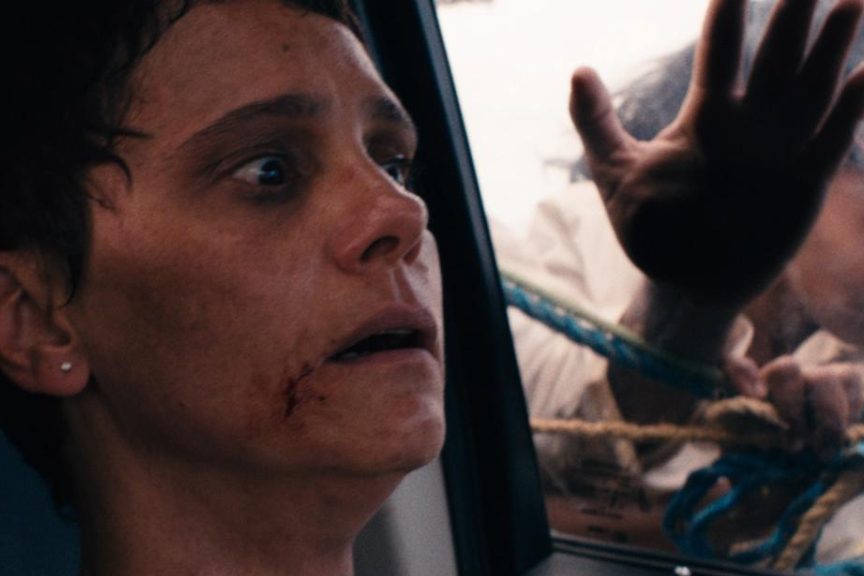Brazil has been the source of some brilliant genre offerings over the last few decades since City of God brought a Godfather sense of operatic scale to the favellas of Rio de Janeiro. The latest is Daniel Bandeira’s Property, an exercise in pure tension with a throbbing pulse of class conflict. A lean and mean, practically single-location thriller with a palpable sense of explosive violence, it wobbles slightly when balancing its sympathies between the class divide, but the execution of its premise is entirely satisfactory.
After suffering a traumatic incident Tereza (Malu Galli) has become a recluse. Her wealthy landlord husband decides a getaway at a ranch he owns would do wonders for her agoraphobic anxiety. He’s even souped up their already sturdy 4×4 into something like a bank vault on wheels to make her feel more secure on their travels. Unbeknown to the couple, the indentured workers on the farm have been made aware of plans to demolish the ranch and build a hotel on the land. A revolt ensues and before long Tereza is barricaded in the car as the labourers try to find a way in.
Bandeira’s tense genre exercise is steeped in both the siege and home invasion thriller genres. The lean, stripped-back plot is a sticking plaster on a festering subtext of class struggle, modern servitude, and generational resentment. Despite the modern setting, the gritty, almost intrusive digital photography (courtesy of Bacurau‘s Pedro Sotero) gives a real taut 70s aesthetic that harks back to John Carpenter (Assault on Precinct 13) and Sam Pekinpah (Straw Dogs and Bring Me the Head of Alfredo Garcia spring to mind), with a zesty modern twist like David Fincher‘s Panic Room.
At its heart is a battle of wits between two formidable women. Tereza and Antonia (Zuleika Ferreira), the unflappable ideological heartbeat of the revolting serfs. Both find themselves in their position tangentially; Tereza as the wife of the landlord who stupidly brings her to the farm just as he has his underlings announce the news, and Antonia as the wife of the labourer who acts as middleman between owners and workers, and who prefers to take his own life than break the news. Neither are to blame for the violence that threaten to consume them, but they become emblems for the unassailable breach between the upper and lower classes.
As such, given that Tereza has no fault in this specific situation – at least of anything worse than suspicion of the lower orders exacerbated by her earlier trauma – the filmmaker’s sympathies don’t seem as ambiguous or shifting as perhaps intended. Perhaps if Tereza’s husband was in the car facing the consequences and the carnage of his own actions the scales would appear more balanced, yet that would miss the fascinating female-driven crux of the narrative. Also, the group of labourers act as rationally or as insanely as the plot demands, particularly a hot-headed farmer who seems to pop up to scupper any chance of accord being reached.
Despite this slight imbalance of sympathies, Property is a thriller of bracing narrative purity, with an effectively blunt depiction of the class divide, and some really striking symbolism; not least in a finale that sees oxen vs armoured car – imagery to fire up the residual Luddite in any class-conscious viewer. A fascinating and brutal film, with two implacable female performances at its heart.
Screened as part of Edinburgh International Film Festival 2023


Comments